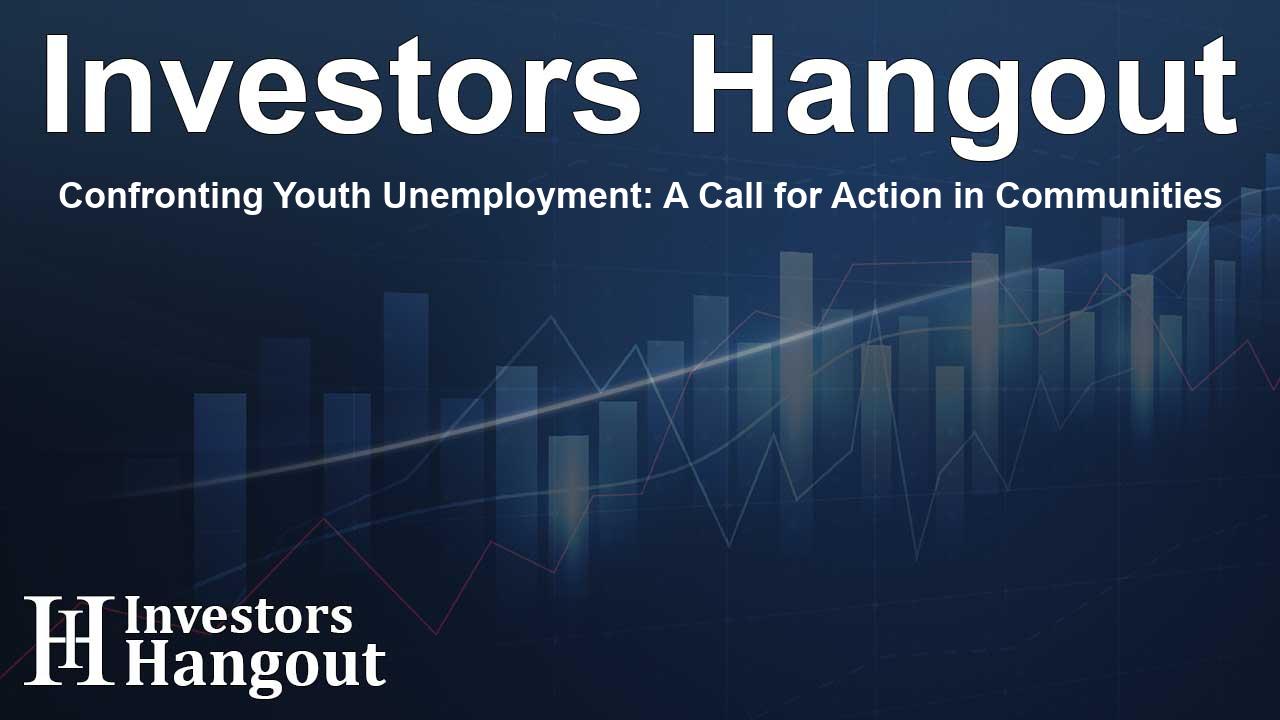Confronting Youth Unemployment: A Call for Action in Communities

Youth Unemployment Crisis: A Deeper Look
Recent data sheds light on alarming disparities in youth unemployment, revealing that in some areas, a staggering proportion of young individuals are struggling to find work. The insights from a recent report examine the severe and persistent joblessness affecting youth and young adults, especially in minority communities. These issues highlight significant racial and geographic inequities that require immediate attention and action.
The Impact of Joblessness on Youth
In specific neighborhoods, more than 80% of teenagers find themselves unemployed, an issue that carries deep implications for their futures and community stability. The research report released by a reputable academic institution underscores the increasing disconnect of young people from both education and employment opportunities. This disconnection is particularly pronounced among Black and Latino youth who are facing higher unemployment rates compared to their white counterparts.
Statistics that Tell the Story
Key statistics reveal the gravity of the situation:
- Disparities in Joblessness: Young Black adults in major cities experience joblessness at twice the rate of their white peers. For instance, 47.6% of Black individuals aged 20 to 24 were unemployed, significantly higher than the 19.5% joblessness rate found among white youths in the same age group.
- Increased Marginalization: One in seven Black youths aged 16 to 19 were not involved in either school or work, a figure that starkly contrasts with just 3.1% of their white counterparts. This alarming statistic highlights the urgent need for targeted interventions.
- Geographical Concerns: Certain neighborhoods are facing youth joblessness rates exceeding 80%, particularly in marginalized areas. This demands immediate community and governmental response to bolster youth employment initiatives.
Proposed Solutions for Youth Employment
A response to these challenges comes in the form of a proposed job-training and placement program, fueled by substantial state funding aimed at addressing the employment crisis. Advocates believe that by connecting young people to job opportunities, it is possible to enhance community safety, strengthen the local economy, and cultivate a new workforce ready to tackle future challenges.
The Role of Community Support
Community leaders advocate for the establishment of comprehensive support systems surrounding these job programs. They stress that participants would benefit not only from job placement but also from social services designed to equip them with vital skills for navigating conflicts and success in the workforce. This holistic approach aims to foster resilience and a sense of belonging among vulnerable youth.
Evidence of Successful Employment Programs
Research has shown that youth employment programs can lead to positive outcomes not only for the individuals involved but also for their communities:
- Reduction in Violent Crime: Programs aimed at providing job opportunities have historically led to reductions in crime rates, demonstrating a link between employment and community safety.
- Increased Readiness to Work: Participants in structured employment programs report feeling more prepared to enter the workforce, with significant increases in resume preparation and interview practice upfront.
- Long-term Economic Benefits: Longitudinal studies indicate that early work experiences correlate with healthier adult financial outcomes, including greater wealth accumulation and homeownership rates.
Looking Ahead: Policy Recommendations
With the job market changing and youth unemployment persistently high, policymakers are called to action. Important recommendations suggest prioritizing access to employment, training programs, and mentorship, especially for those communities hardest hit by joblessness.
Investing in youth not only benefits individuals but also strengthens the economy and builds a more inclusive society. Community leaders emphasize that proactive measures are essential for sustaining economic growth long-term.
Frequently Asked Questions
What are the main findings of the recent youth unemployment report?
The report highlights alarming joblessness rates among youth, particularly in Black and Latino communities, with some areas seeing unemployment over 80% among teens.
What is being proposed to address the unemployment crisis?
A coalition of nonprofits is advocating for a job-training program backed by state funding to secure employment for around 50,000 jobless youth.
How can youth employment programs benefit communities?
These programs can reduce crime, enhance community cohesion, and provide youths with vital skills needed for future employment.
What disparities exist between different racial groups in employment?
Young Black adults face unemployment rates that are significantly higher than those of their white and Latino peers, indicating severe racial inequities.
What role do policymakers play in resolving youth unemployment?
Policymakers are essential for creating and funding programs that expand access to jobs, skills training, and support services for underprivileged communities.
About The Author
Contact Riley Hayes privately here. Or send an email with ATTN: Riley Hayes as the subject to contact@investorshangout.com.
About Investors Hangout
Investors Hangout is a leading online stock forum for financial discussion and learning, offering a wide range of free tools and resources. It draws in traders of all levels, who exchange market knowledge, investigate trading tactics, and keep an eye on industry developments in real time. Featuring financial articles, stock message boards, quotes, charts, company profiles, and live news updates. Through cooperative learning and a wealth of informational resources, it helps users from novices creating their first portfolios to experts honing their techniques. Join Investors Hangout today: https://investorshangout.com/
The content of this article is based on factual, publicly available information and does not represent legal, financial, or investment advice. Investors Hangout does not offer financial advice, and the author is not a licensed financial advisor. Consult a qualified advisor before making any financial or investment decisions based on this article. This article should not be considered advice to purchase, sell, or hold any securities or other investments. If any of the material provided here is inaccurate, please contact us for corrections.
